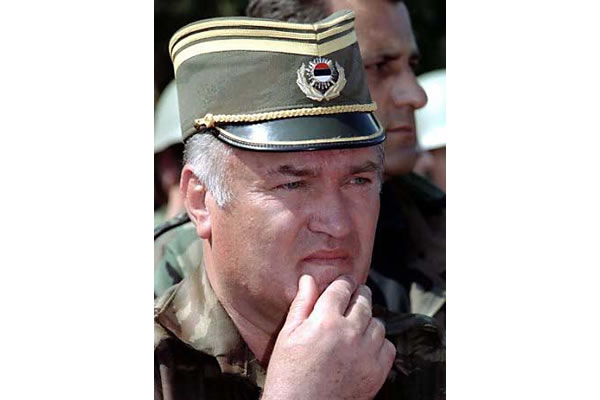Home
“BLACK HOLE” IN RATKO MLADIC’S CAREER
The decree promoting Ratko Mladic to the rank of a four-star general, signed by the then president of the FRY on 16 June 1994 – is the only record entered in Mladic’s “personnel file” in the period from his arrival in Sarajevo in May 1992 until his removal from the records of the VJ professional military personnel in June 2001 is. Who was Mladic’s supreme commander: Zoran Lilic or Radovan Karadzic?
 Ratko Mladic
Ratko Mladic According to the information in Ratko Mladic’s personnel file, his military career spans the period from 27 September 1965, when he joined the JNA after graduating from the military academy, to 28 February 2002 when he was “discharged from professional military service” pursuant to a decree of the president of Republika Srpska. The details from his file have been published in the press all over the world recently – from the Sarajevo Avaz to the London Times.
His JNA/VJ personnel file shows a huge black hole in his career. After his posting to the Chief of Staff of the Second Military District Command in Sarajevo, pursuant to a decree of the rump SFRY Presidency of 25 April 1992, Mladic’s “paper trail” in the JNA/VJ files disappears. One might say that it is only logical given that the JNA withdrew from BH in May 1992 and Mladic was appointed a commander of another army, in another country.
However, there are two or three details in his personnel file that do not support this logic. The first is that on 16 June 1994 Ratko Mladic received an early promotion to four-star general pursuant to a decree issued by the then president of FR Yugoslavia, Zoran Lilic. Heads of state do sometimes bestow the highest decorations on the army commanders of friendly states, but this is probably a unique case: the president of a country which is “not involved in the war” promotes to a higher rank a commander in the military of another state which has emerged from the war. Someone might conclude that Zoran Lilic was Ratko Mladic's supreme commander, not Radovan Karadzic. This may indeed be the reason why the Belgrade authorities were reluctant for so long to respond to the request of the OTP to hand over Mladic’s military file.
After a note on his early promotion in June 1994, the personnel file does not contain any new entry about Mladic’s career until 16 June 2001, when he is “removed from the records of professional soldiers of the Yugoslav Army” by a decree of the then FRY president, Vojislav Kostunica. His future status, it is noted, “shall be regulated in accordance with the provisions of the Agreement on the Establishment of Special Parallel Relations between the FRY and Republika Srpska.”
It is interesting that this is the first entry in Mladic’s personnel file – in June 2001 – making explicit mention of Republika Srpska. The second and last time it is mentioned is in the decree of the RS president discharging Mladic from professional military service, dated 28 February 2002.
The part of his military curriculum that is absent from his personnel file has been reconstructed in the indictment in which Ratko Mladic is charged with genocide and other war crimes within the jurisdiction of the ICTY, committed between May 1992 and the end of the war in BH in November 1995 – which is precisely the period in which there are no entries in his personnel file, except for the one on his promotion to a four-star general, an honor he received from the president of another state.
